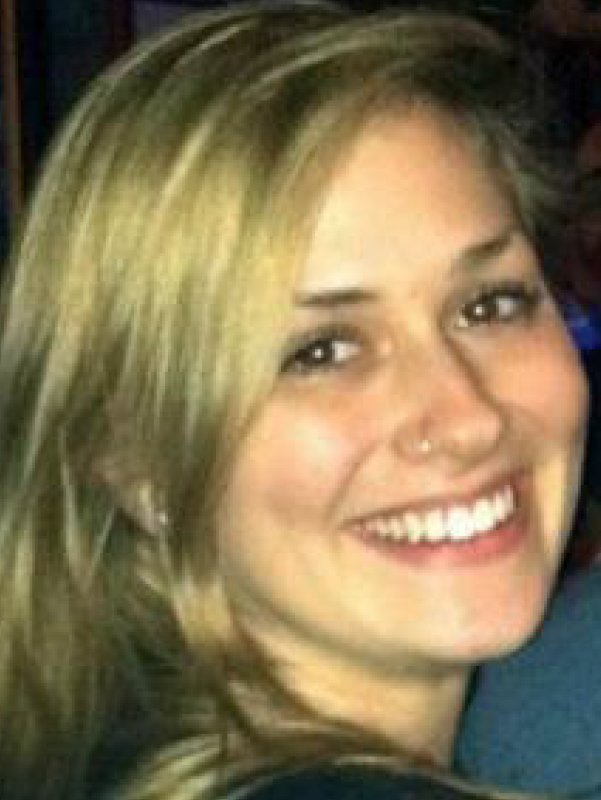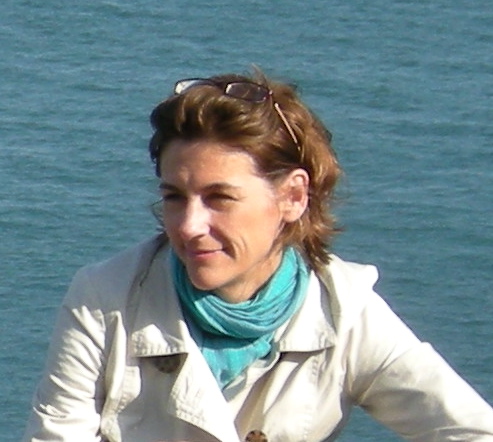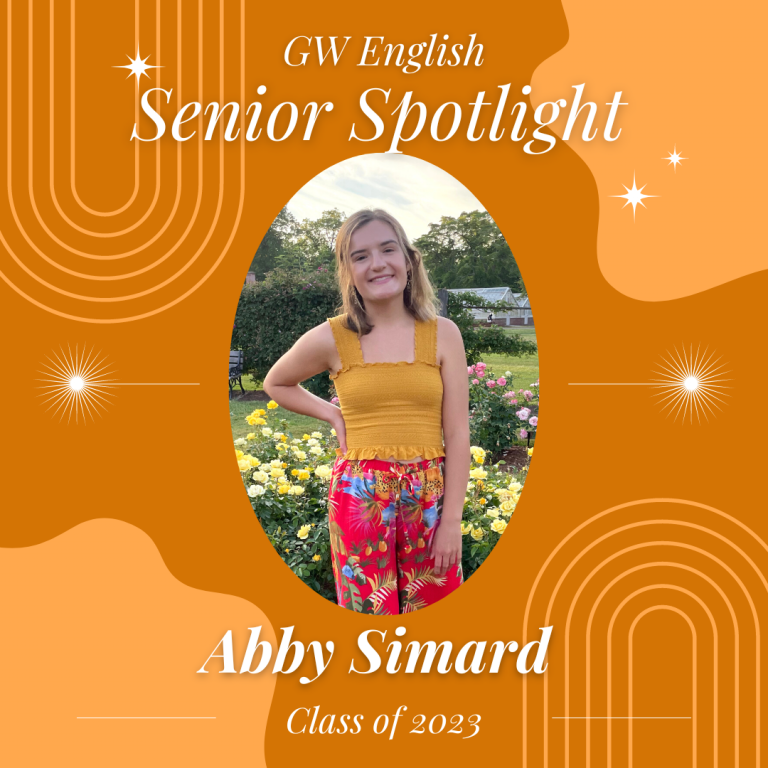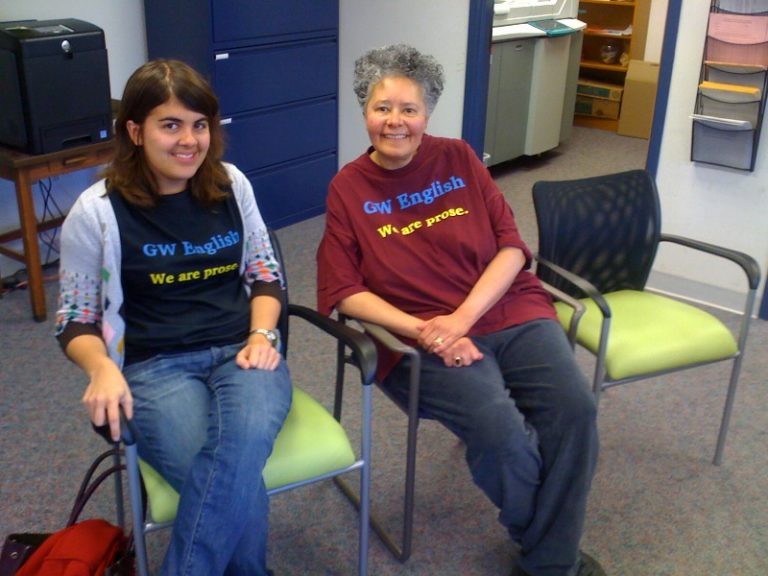 |
Abby Dimen-Taylor
GW English ’12 |
Abby Dimen-Taylor graduated from GW with an English major and a minor in Psychology as part of the class of 2012. She graduated with Honors in English after completing a thesis on James Baldwin under the direction of Professor Jim Miller. She very much enjoyed her time with GW English, particularly noting her Critical Methods class with Professor Tony López and the short-term study abroad class she took with Professor Robert McRuer, Transnational Queer Film Studies, which included a week in Prague at the Mezipatra Queer Film Festival. Abby is currently working for the American Society for Clinical Oncology (ASCO) in Alexandria, but plans on applying to programs soon to pursue a Masters degree in Social Work (MSW). She is also volunteering for the DC Rape Crisis Center, helping to staff their hotline. We recently caught up with Abby to ask her about that important work [disclaimer: the views expressed in this interview do not necessarily reflect the views of the DC Rape Crisis Center].
Could you describe the work that you do volunteering at the DC Rape Crisis Center?
I volunteered as a hotline advocate for the DC Rape Crisis Center (DCRCC) for about a year as a senior-year student at the George Washington University. I recently began volunteering again last month. As a hotline advocate, I speak with women and men who call DCRCC’s Hotline because they are experiencing sexual assault-related crises. At the beginning of the call, I try to understand the crisis that the caller is experiencing. He or she might be feeling scared, angry, confused, panicked, or suicidal – or a combination of several emotions. Our role as advocates is to try and identify the crisis so that we can intervene helpfully and supportively. We can also provide information on resources that are available to survivors of sexual assault, their families, and their friends.
What are some of the challenges that you face working the hotline?
Working on the hotline is extremely rewarding, but it can be upsetting at times. It’s important to be cognizant of one’s emotional limits. When I have finished a particularly distressing call, I reach out to the volunteer or staff member on hotline backup duty discuss the call and, if necessary, ask questions. It is reassuring to know that there is always another hotline advocate who can help me to process my feelings about the call.
It sounds like this work makes a real difference in the lives of women. Has your work in support of victims and survivors of sexual violence influenced your decision to pursue social work more broadly?
I originally became a volunteer with DCRCC because of my growing interest in psychology as a student at GW. My experience with DCRCC has certainly contributed to my continued interest in psychology and my decision to pursue a Masters in Social Work. I value my work at the Center because it has given me the chance to see what it might be like to do therapeutic work with individuals who experience trauma. I should mention here that the hotline advocates do not have therapeutic training; rather they have been trained by DCRCC to perform crisis intervention. Nevertheless, volunteering on the hotline has exposed me to the powerful connection that can be created between the caller and the hotline advocate, and has motivated me to pursue a career that focuses on this relationship.
The DC Rape Crisis Center’s aim is “Creating a World Free of Sexual Violence.” What are a few of the barriers to creating that world?
There are some very real barriers that stand in the way of ridding the world of sexual violence altogether. Eradicating someone’s desire to hurt another person is not a straightforward task. That said, organizations like DCRCC initiate dialogues about sexual assault that educate volunteers, survivors, and the general public about why sexual assault happens and how we can best support its survivors. This effort is crucial to decreasing the instances of sexual assault locally and globally, especially when there are still so many who are misinformed, or even uninformed, about this issue.
Are there concrete steps that GW could take in furthering the work of organizations like the DC Rape Crisis Center?
GW provides information about sexual assault and an opportunity to openly discuss it among peers during orientation for new students. I would urge GW to take this communication to the next level. The University might consider providing ongoing discussions of this type throughout the year for new and continuing students. Additionally, sexual assault education on campus should cater to sororities and fraternities specifically, since it is within these cultures that sexual assault frequently occurs. GW certainly provides many resources to its students, but information surrounding sexual assault should be a priority.








